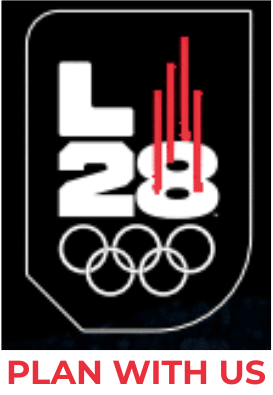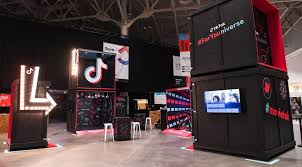Consumers today expect more than just advertisements; they want immersive, engaging, and memorable experiences that connect them with brands in meaningful ways. This is where experiential marketing comes in. Unlike traditional digital marketing, which relies on online content, ads, and social media, experiential marketing brings brands to life through real-world activations that foster deeper emotional connections.
From interactive pop-ups to augmented reality experiences, experiential marketing has evolved into a powerful tool for brands to engage their audiences in unique ways. In this article, we’ll explore the different types of experiential marketing, provide real-world examples, and show how Towerhouse Global can help create unforgettable brand experiences.
1. What Is Experiential Marketing?
Definition & Purpose
Experiential marketing (also known as engagement marketing, event marketing, or live marketing) is a strategy that actively involves consumers in brand experiences rather than just delivering messages. It goes beyond traditional advertising to create interactive, hands-on engagements that make brands more memorable.
How Experiential Marketing Differs from Digital Marketing
While digital marketing is essential for brand awareness and online engagement, it often lacks the emotional depth and physical interaction that experiential marketing offers. Combining both strategies ensures brands engage audiences across multiple touchpoints.
📌 Example:
- A beverage company could use digital marketing to promote a new product launch via social media ads and email campaigns, but also implement experiential marketing by setting up tasting stations in high-traffic areas to let customers sample the drink in real time.
✔ Why It Works:
✅ Live experiences create lasting emotional connections
✅ People remember brands they interact with, not just see online
✅ Combining digital and experiential marketing enhances reach and engagement
How Towerhouse Global Can Help:
We design custom experiential marketing campaigns that seamlessly integrate with digital strategies to maximize brand engagement and consumer interaction.
2. Types of Experiential Marketing and Real-World Examples
1. Pop-Up Experiences & Interactive Installations
📌 What It Is:
Pop-ups and brand activations allow companies to create short-term, high-impact brand experiences in physical locations. These spaces can be designed for product sampling, immersive storytelling, or interactive engagements.
📌 Example:
- Glossier’s Pop-Up Shops create limited-time retail experiences that attract massive crowds, social media buzz, and influencer participation, reinforcing the brand’s cult-like following.
- Netflix’s Stranger Things Experience transformed New York and LA into immersive Hawkins, Indiana, recreating iconic scenes from the show and allowing fans to interact with the brand physically.
✔ How to Leverage Pop-Ups:
✅ Design Instagrammable spaces to encourage organic social sharing
✅ Use digital marketing to drive foot traffic to pop-up locations
✅ Create exclusive, time-sensitive experiences to drive urgency
How Towerhouse Global Can Help:
We specialize in creating unforgettable pop-up experiences that seamlessly blend immersive physical engagement with digital amplification.
2. Product Sampling & Experiential Giveaways
📌 What It Is:
Letting consumers physically try a product before purchase is one of the most effective ways to drive conversions. Experiential marketing makes product sampling more engaging by adding interactive elements.
📌 Example:
- Pepsi’s Taste Challenge allowed consumers to blind taste-test Pepsi against Coke, turning product sampling into an interactive competition.
- Lush’s in-store demonstrations encourage shoppers to touch, smell, and sample products, making the experience memorable and multisensory.
✔ How to Leverage Product Sampling:
✅ Turn product trials into interactive activations
✅ Combine sampling with social media challenges for maximum exposure
✅ Use influencer partnerships to amplify product trials online
How Towerhouse Global Can Help:
We develop experiential product sampling campaigns that engage consumers, create excitement, and drive brand loyalty.
3. Augmented Reality (AR) & Virtual Reality (VR) Experiences
📌 What It Is:
AR and VR technologies enable brands to create immersive, interactive experiences that transport consumers into the brand’s world.
📌 Example:
- IKEA’s “Place” App lets consumers virtually place furniture in their homes before buying, using AR to enhance e-commerce and decision-making.
- Coca-Cola’s AR Christmas Campaign allowed users to scan billboards and watch Santa come to life, blending physical advertising with digital interaction.
✔ How to Leverage AR/VR:
✅ Use AR try-ons for products like makeup, shoes, and glasses
✅ Offer VR brand experiences that transport consumers into unique environments
✅ Blend AR with physical activations for hybrid brand engagement
How Towerhouse Global Can Help:
We create AR and VR-powered experiential marketing campaigns that merge the physical and digital worlds to maximize engagement.
Gamification & Interactive Challenges
📌 What It Is:
Gamification encourages consumers to actively participate in brand experiences through games, challenges, and rewards.
📌 Example:
- McDonald’s Monopoly Game turns product purchases into an interactive, collectible experience, driving repeat visits.
- Burger King’s “Burn That Ad” campaign used AR to let consumers “burn” McDonald’s ads to receive discounts, gamifying brand interaction.
✔ How to Leverage Gamification:
✅ Use AR-powered scavenger hunts and brand challenges
✅ Incorporate point-based rewards systems for engagement
✅ Encourage social sharing by linking gamification with social media contests
How Towerhouse Global Can Help:
We design custom gamification experiences that enhance engagement, increase participation, and create memorable brand moments.
5. Influencer-Driven Live Events & Brand Activations
📌 What It Is:
Brands collaborate with influencers to create authentic, experience-based marketing activations that drive engagement.
📌 Example:
- Fenty Beauty’s influencer-led pop-ups allowed influencers and fans to interact with products, generating massive online buzz.
- Sephora’s Beauty Insider Events created exclusive VIP experiences for customers, combining influencer partnerships with live brand activations.
✔ How to Leverage Influencer Marketing in Experiential Activations:
✅ Host influencer-led live brand experiences
✅ Encourage real-time influencer engagement at events
✅ Turn live experiences into influencer content hubs
How Towerhouse Global Can Help:
We create influencer-driven brand activations that maximize reach, credibility, and engagement.
Final Thoughts: Why Experiential Marketing Is Essential Today
Experiential marketing is one of the most effective ways to engage audiences, build loyalty, and create shareable brand moments. When combined with digital marketing, these activations amplify brand reach and generate organic buzz.
✔ It enhances brand storytelling through live, interactive engagement
✔ It drives customer loyalty by creating emotional connections
✔ It fuels digital marketing strategies with user-generated content
✔ It differentiates brands by offering immersive, memorable experiences
At Towerhouse Global, we specialize in:
✅ Live event production & experiential marketing activations
✅ Cutting-edge AR, VR, and gamified brand experiences
✅ Hybrid campaigns that integrate digital and in-person engagement
📩 Contact Towerhouse Global today to create a high-impact experiential marketing campaign that captivates audiences and drives real results! 🚀





